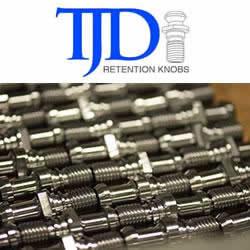XJet unveils new ceramic material and new soluble support material at formnext
The latest order represents the growth of XJets presence to seven countries across the globe; a number set to grow even more rapidly in 2019.
Frankfurt, Germany (formnext 2018 - stand D80, hall 3.1) - November 14, 2018 - Additive manufacturing company XJet Ltd. unveils a new ceramic material, alumina, at formnext today. Following rigorous dialogue with the industry, alumina was chosen for development because of its wide use as a technical ceramic and evident market demand to see parts produced with the benefits of XJet NanoParticle Jetting™ (NPJ) production. Offering very good electrical insulation, extremely high mechanical strength, high compressive strength and high hardness, it differs from zirconia in that it has lower wear resistance, making it simple to machine and refine both before and after firing.
XJet also announced its entry into Italy with a new Carmel 1400 AM System to be installed at Beam-IT, Italys largest additive manufacturing bureau, before the end of the year. The latest order represents the growth of XJets presence to seven countries across the globe; a number set to grow even more rapidly in 2019.
"XJet is devoted to the ongoing development of this technology and to serve the AM market," states XJet CEO Hanan Gothait, "The recent opening of our more than $10m Additive Manufacturing Centre is a testament to this, as the largest facility dedicated entirely to development of new materials and applications in metal and ceramic AM. The new alumina material devolpment was sped up thanks to the availability of dedicated systems for this purpose in the last few weeks. Whilst XJet NanoParticle Jetting technology is in itself unique, offering distinct advantages, were examining every part of the process for opportunities to push the envelope, from the hardware, the material chemistry and beyond."
According to Gothait one such development has been in the support materials. Overhangs and cavities are supported throughout the NPJ build process by a soluble support material, which has recently been created to fit the soon-to-be-available stainless steel material. Fine detail and complex geometries can be created with no concern they will be harmed in the bath support-removal process.
"Its been a year of outstanding growth and Im immensely proud of what the team here at XJet has achieved both in product development, the manufacturing agreement and new facility, and the new labs opening. Next year will be even bigger as we add these new materials, welcome many new customers and continue to build an infrastructure to support that rapid growth including a network of distributors, a great customer development and support team and more. The market response to our technology and system has been wonderful and we make sure that we grow at the right pace, building a strong and solid foundation for a very large, leading company in its field," says Gothait.
About XJet
XJet is a provider of breakthrough ceramic and metal additive manufacturing solutions for the aerospace, automotive, medical/dental, tooling and many more markets. Featuring the companys patented NanoParticle Jetting™ technology, the XJet Carmel product line is redefining ceramic and metal additive manufacturing industries by printing separate nanoparticle "inks" or fluids for the build and support materials. This allows manufacturers to produce ceramic or metal parts with complex geometries with the ease and versatility of inkjet printing. XJets world-class R&D team, which includes skilled veterans from the inkjet and 3D printing industries, holds more than 79 registered and pending patents. The company is based in Rehovot, Israel.
www.xjet3d.com
Featured Product

